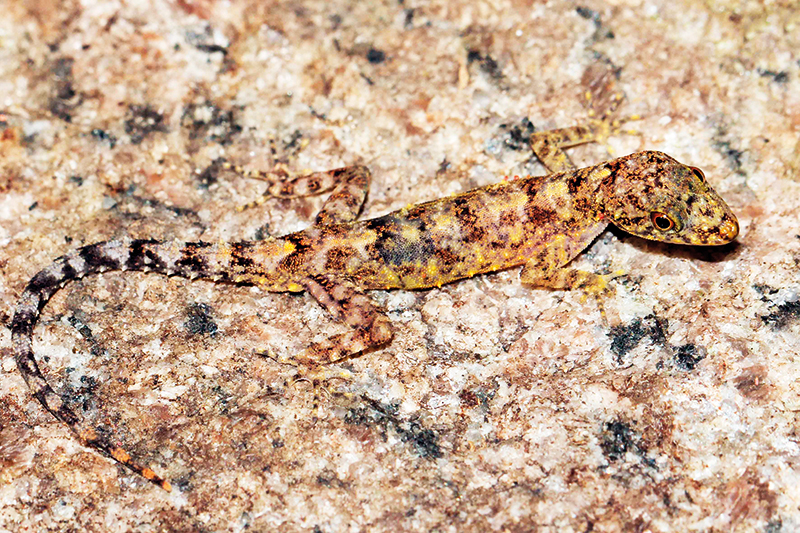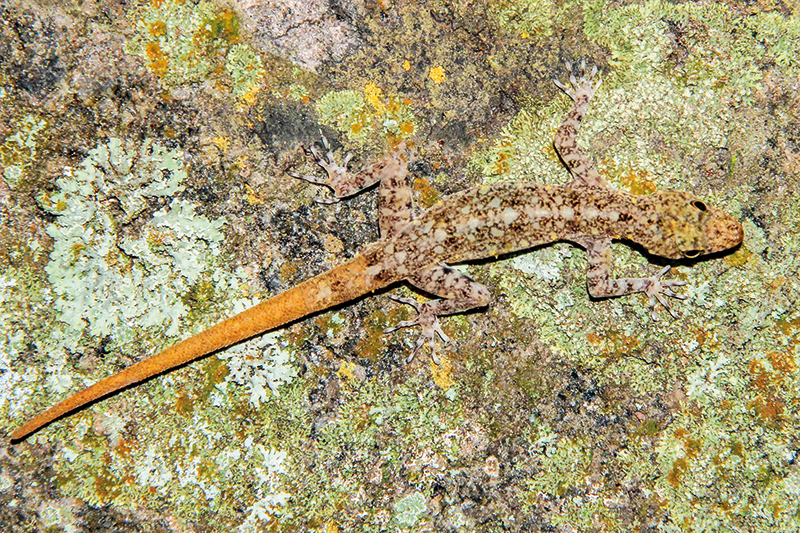Features
A Profession at Peril – The Police at a Crossroad

Perils of a Profession. By Merril Gunaratne. Published January 2021. 136 pages. Price Rs. 300/-. Available at Vijitha Yapa and Sarasavi Bookshops. Reviewed by Leelananda De Silva.
There is great concern in the country regarding the ever changing nature of our constitution and the implications for all of us. As important as the constitution, are the public institutions that have a great bearing on the day to day life of the country and its people. Appropriate and efficient institutions – the Sri Lanka Administrative Service, the health service, engineering services, local government mechanisms, the Police – are vital to the efficient conduct of public life. It is a matter for great regret that we have neglected these institutions and diminished their authority and the autonomous spaces they had, for the sake of greater political and party control. The politicization of the Police is no exception. The volume under review is a fine illustration of the story decline of one these great institutions – the Police after 1977.
The author of this volume, Merril Gunaratne, a former Senior Deputy Inspector General of Police was a fine officer in his time, carrying out his duties impartially and in the public interest. He is a product of the University of Peradeniya in the early 1960s, having read history for his degree. He was a top cricketer and played for the university when it was captained by the formidable D.H. De Silva. Later, he was a leading member of the Police cricket team. He took early retirement from the Police when he found that politics was depriving him from obtaining the top spot as IGP, which he richly deserved.
The volume is largely a memoir of his time in the Police force in the 1960s, 1970s and 1980s where he served as ASP, SP, and DIG. A leading theme is the politicization of the Sri Lankan police, especially after 1977 and with a new constitution which removed most of the autonomy that institutions like the police had. Another theme is the structure of the police force – recruitment, training, placements, promotions, the principle of seniority, the lack of leadership in the face of political pressure and so on. The author has the highest regard for former IGP Cyril Herath who took premature retirement refusing to bow to political pressure. He refused an ambassadorial position offered as compensation.
The volume contains much information on various instances of police intervention, which were much talked of at the time – confrontation with the Minister, Cyril Mathew at the Kelaniya University, the hostage drama in Biyagama, the Muslim-Sinhala riots in Aluthgama in 1991 and many others, where the author was directly involved. An interesting feature of the book are an Introduction and a Foreword by Dr. Rohan Gunaratna and Dhammike Amarasinghe respectively. They offer us valuable insights into the many issues raised in the volume.
The politicization of the police force is clearly evident since 1977. Politicians at ministerial level and above, and even at provincial and district levels, have intervened with police transfers and promotions. When this happens, and the top brass of the police do not resist these trends, the impression gained by the ordinary police officer is that it is in his interest to cultivate the politicians, who can assist them in their transfers and promotions. Merril Gunaratne’s volume clearly points to the lack of leadership in the police force with regard to political intervention. The story of the confrontation between the Minister Cyril Mathew and the author at Kelaniya is a rare instance in recent times of the police standing up to a leading politician. The Minister asked the author to remove his police force from the Kelaniya University so that his gang of thugs and other supporters that he had brought could have a free run in attacking the Kelaniya University students. When that demand was rejected, the Minister and his gang disappeared. This type of action would not have endeared the author to the then political establishment.
With regard to training of policemen recruited at the level of ASP, the author suggests that they should undergo a kind of training, being attached to a police station, to understand the realities of day-to-day policing and managing a police station. He feels that the directly recruited ASPs lack that intimate knowledge of day-to-day policing and police stations that are essential for the efficient conduct of duties at the higher levels. While this is appropriate, it needs to be understood that graduates coming into the police force have a vital role in injecting a broad minded, thinking, and even a kind of intellectual approach to policing. Day-to-day policing has obvious implications for democratic values and the liberty of citizens and a university education is appropriate for future police leaders.
Issues of seniority and promotion are addressed in this volume. These questions arise not only in the police but also in other government services. However, in the police, they are much more vital to the integrity and the morale of the police force. The author points to many instances where seniority was ignored to make high level appointments, and that has led to demoralization and even increasing politicization. There are many instances in which the author points out that senior level promotions were made, discarding the principle of seniority to appoint political favourites. While agreeing with the author’s contention of seniority being the main factor for promotions, there should also be objective and independent mechanisms, to deny promotions to those considered ineffective.
While the picture before 1977 was more rosy than the period after, the pre-1977 policing was not without significant problems. The inheritance from the colonial days was for a police force, detached from the common man. People like Dowbiggin who was IGP for a long time in the 1920s and 1930s were virtually a law unto themselves, and had strong ideas about British imperial rule. That type of policing by people like Dowbiggin had a more than passing influence on local policemen of that time. Cruelty was endemic in many police stations and police leaders took no action. Then more lately, there was the 1962 attempted coup, where some of the police top brass were involved, trying to oust a legitimate government. Some top policemen at that time were certainly politically inclined.
So what has happened since 1977 is not entirely new, although the pace of police politicization has increased. Merril Gunaratne’s insightful volume comes at an ideal time when the Police need a comprehensive review of its role in the nation’s affairs. The author has suggested that a Presidential Commission should undertake this task. That is certainly an approach to be commended. Another important aspect that has been neglected in Sri Lanka is a research institution independent of the police which can undertake continuing research on the role of policing in the country, similar to economic research institutions. Research is a vital part of improving improve any policy or institution, and any Presidential Commission should have access to a comprehensive body of relevant research.
This brief volume offers the reader a range of insights into police practices. It is well written and highly readable.
Features
Making ‘Sinhala Studies’ globally relevant

 On 8 January 2026, I delivered a talk at an event at the University of Colombo marking the retirement of my longtime friend and former Professor of Sinhala, Ananda Tissa Kumara and his appointment as Emeritus Professor of Sinhala in that university. What I said has much to do with decolonising social sciences and humanities and the contributions countries like ours can make to the global discourses of knowledge in these broad disciplines. I have previously discussed these issues in this column, including in my essay, ‘Does Sri Lanka Contribute to the Global Intellectual Expansion of Social Sciences and Humanities?’ published on 29 October 2025 and ‘Can Asians Think? Towards Decolonising Social Sciences and Humanities’ published on 31 December 2025.
On 8 January 2026, I delivered a talk at an event at the University of Colombo marking the retirement of my longtime friend and former Professor of Sinhala, Ananda Tissa Kumara and his appointment as Emeritus Professor of Sinhala in that university. What I said has much to do with decolonising social sciences and humanities and the contributions countries like ours can make to the global discourses of knowledge in these broad disciplines. I have previously discussed these issues in this column, including in my essay, ‘Does Sri Lanka Contribute to the Global Intellectual Expansion of Social Sciences and Humanities?’ published on 29 October 2025 and ‘Can Asians Think? Towards Decolonising Social Sciences and Humanities’ published on 31 December 2025.
At the recent talk, I posed a question that relates directly to what I have raised earlier but drew from a specific type of knowledge scholars like Prof Ananda Tissa Kumara have produced over a lifetime about our cultural worlds. I do not refer to their published work on Sinhala, Pali and Sanskrit languages, their histories or grammars; instead, their writing on various aspects of Sinhala culture. Erudite scholars familiar with Tamil sources have written extensively on Tamil culture in this same manner, which I will not refer to here.
To elaborate, let me refer to a several essays written by Professor Tissa Kumara over the years in the Sinhala language: 1) Aspects of Sri Lankan town planning emerging from Sinhala Sandesha poetry; 2) Health practices emerging from inscriptions of the latter part of the Anuradhapura period; 3) Buddhist religious background described in inscriptions of the Kandyan period; 4) Notions of aesthetic appreciation emerging from Sigiri poetry; 5) Rituals related to Sinhala clinical procedures; 6) Customs linked to marriage taboos in Sinhala society; 7) Food habits of ancient and medieval Lankans; and 8) The decline of modern Buddhist education. All these essays by Prof. Tissa Kumara and many others like them written by others remain untranslated into English or any other global language that holds intellectual power. The only exceptions would be the handful of scholars who also wrote in English or some of their works happened to be translated into English, an example of the latter being Prof. M.B. Ariyapala’s classic, Society in Medieval Ceylon.
The question I raised during my lecture was, what does one do with this knowledge and whether it is not possible to use this kind of knowledge profitably for theory building, conceptual and methodological fine-tuning and other such essential work mostly in the domain of abstract thinking that is crucially needed for social sciences and humanities. But this is not an interest these scholars ever entertained. Except for those who wrote fictionalised accounts such as unsubstantiated stories on mythological characters like Rawana, many of these scholars amassed detailed information along with their sources. This focus on sources is evident even in the titles of many of Prof. Tissa Kumara’s work referred to earlier. Rather than focusing on theorising or theory-based interpretations, these scholars’ aim was to collect and present socio-cultural material that is inaccessible to most others in society including people like myself. Either we know very little of such material or are completely unaware of their existence. But they are important sources of our collective history indicating what we are where we have come from and need to be seen as a specific genre of research.
In this sense, people like Prof. Tissa Kumara and his predecessors are human encyclopedias. But the knowledge they produced, when situated in the context of global knowledge production in general, remains mostly as ‘raw’ information albeit crucial. The pertinent question now is what do we do with this information? They can, of course, remain as it is. My argument however is this knowledge can be a serious source for theory-building and constructing philosophy based on a deeper understanding of the histories of our country and of the region and how people in these areas have dealt with the world over time.
Most scholars in our country and elsewhere in the region believe that the theoretical and conceptual apparatuses needed for our thinking – clearly manifest in social sciences and humanities – must necessarily be imported from the ‘west.’ It is this backward assumption, but specifically in reference to Indian experiences on social theory, that Prathama Banerjee and her colleagues observe in the following words: “theory appears as a ready-made body of philosophical thought, produced in the West …” As they further note, in this situation, “the more theory-inclined among us simply pick the latest theory off-the-shelf and ‘apply’ it to our context” disregarding its provincial European or North American origin, because of the false belief “that “‘theory’ is by definition universal.” What this means is that like in India, in countries like ours too, the “relationship to theory is dependent, derivative, and often deeply alienated.”
In a somewhat similar critique in his 2000 book, Provincialising Europe: Postcolonial Thought and Historical Difference Dipesh Chakrabarty points to the limitations of Western social sciences in explaining the historical experiences of political modernity in South Asia. He attempted to renew Western and particularly European thought “from and for the margins,” and bring in diverse histories from regions that were marginalised in global knowledge production into the mainstream discourse of knowledge. In effect, this means making histories of countries like ours relevant in knowledge production.
The erroneous and blind faith in the universality of theory is evident in our country too whether it is the unquestioned embrace of modernist theories and philosophies or their postmodern versions. The heroes in this situation generally remain old white men from Marx to Foucault and many in between. This indicates the kind of unhealthy dependence local discourses of theory owe to the ‘west’ without any attempt towards generating serious thinking on our own.
In his 2002 essay, ‘Dismal State of Social Sciences in Pakistan,’ Akbar Zaidi points out how Pakistani social scientists blindly apply imported “theoretical arguments and constructs to Pakistani conditions without questioning, debating or commenting on the theory itself.” Similarly, as I noted in my 2017 essay, ‘Reclaiming Social Sciences and Humanities: Notes from South Asia,’ Sri Lankan social sciences and humanities have “not seriously engaged in recent times with the dominant theoretical constructs that currently hold sway in the more academically dominant parts of the world.” Our scholars also have not offered any serious alternate constructions of their own to the world without going crudely nativistic or exclusivist.
This situation brings me back to the kind of knowledge that scholars like Prof. Tissa Kumara have produced. Philosophy, theory or concepts generally emerge from specific historical and temporal conditions. Therefore, they are difficult to universalise or generalise without serious consequences. This does not mean that some ideas would not have universal applicability with or without minor fine tuning. In general, however, such bodies of abstract knowledge should ideally be constructed with reference to the histories and contemporary socio-political circumstances
from where they emerge that may have applicability to other places with similar histories. This is what Banerjee and her colleagues proposed in their 2016 essay, ‘The Work of Theory: Thinking Across Traditions’. This is also what decolonial theorists such as Walter Mignolo, Enrique Dussel and Aníbal Quijano have referred to as ‘decolonizing Western epistemology’ and ‘building decolonial epistemologies.’
My sense is, scholars like Prof. Tissa Kumara have amassed at least some part of such knowledge that can be used for theory-building that has so far not been used for this purpose. Let me refer to two specific examples that have local relevance which will place my argument in context. Historian and political scientist Benedict Anderson argued in his influential 1983 book, Imagined Communities: Reflections on the Origin and Spread of Nationalism that notions of nationalism led to the creation of nations or, as he calls them, ‘imagined communities.’ For him, unlike many others, European nation states emerged in response to the rise of ‘nationalism’ in the overseas European settlements, especially in the Western Hemisphere. But it was still a form of thinking that had Europe at its center.
Comparatively, we can consider Stephen Kemper’s 1991 book, The Presence of the Past: Chronicles, Politics, and Culture in Sinhala Life where the American anthropologist explored the ways in which Sinhala ‘national’ identity evolved over time along with a continual historical consciousness because of the existence of texts such as Mahawamsa. In other words, the Sinhala past manifests with social practices that have continued from the ancient past among which are chronicle-keeping, maintaining sacred places, and venerating heroes.
In this context, his argument is that Sinhala nationalism predates the rise of nationalist movements in Europe by over a thousand years, thereby challenging the hegemonic arguments such as those of Anderson, Ernest Gellner, Elie Kedourie and others who link nationalism as a modern phenomenon impacted by Europe in some way or another. Kemper was able to come to his interpretation by closely reading Lankan texts such as Mahawamsa and other Pali chronicles and more critically, theorizing what is in these texts. Such interpretable material is what has been presented by Prof. Tissa Kumara and others, sans the sing.
Similarly, local texts in Sinhala such as kadaim poth’ and vitti poth, which are basically narratives of local boundaries and descriptions of specific events written in the Dambadeniya and Kandyan periods are replete with crucial information. This includes local village and district boundaries, the different ethno-cultural groups that lived in and came to settle in specific places in these kingdoms, migratory events, wars and so on. These texts as well as European diplomatic dispatches and political reports from these times, particularly during the Kandyan period, refer to the cosmopolitanism in the Kandyan kingdom particularly its court, the military, town planning and more importantly the religious tolerance which even surprised the European observers and latter-day colonial rulers. Again, much of this comes from local sources or much less focused upon European dispatches of the time.
Scholars like Prof. Tissa Kumara have collected this kind of information as well as material from much older times and sources. What would the conceptual categories, such as ethnicity, nationalism, cosmopolitanism be like if they are reinterpreted or cast anew through these histories, rather than merely following their European and North American intellectual and historical slants which is the case at present? Among the questions we can ask are, whether these local idiosyncrasies resulted from Buddhism or local cultural practices we may not know much about at present but may exist in inscriptions, in ola leaf manuscripts or in other materials collected and presented by scholars such as Prof. Tissa Kumara.
For me, familiarizing ourselves with this under- and unused archive and employing them for theory-building as well as for fine-tuning what already exists is the main intellectual role we can play in taking our cultural knowledge to the world in a way that might make sense beyond the linguistic and socio-political borders of our country. Whether our universities and scholars are ready to attempt this without falling into the trap of crude nativisms, be satisfied with what has already been collected, but is untheorized or if they would rather lackadaisically remain shackled to ‘western’ epistemologies in the sense articulated by decolonial theorists remains to be seen.
Features
Extinction in isolation: Sri Lanka’s lizards at the climate crossroads

Climate change is no longer a distant or abstract threat to Sri Lanka’s biodiversity. It is already driving local extinctions — particularly among lizards trapped in geographically isolated habitats, where even small increases in temperature can mean the difference between survival and disappearance.
According to research by Buddhi Dayananda, Thilina Surasinghe and Suranjan Karunarathna, Sri Lanka’s narrowly distributed lizards are among the most vulnerable vertebrates in the country, with climate stress intensifying the impacts of habitat loss, fragmentation and naturally small population sizes.
Isolation Turns Warming into an Extinction Trap
Sri Lanka’s rugged topography and long geological isolation have produced extraordinary levels of reptile endemism. Many lizard species are confined to single mountains, forest patches or rock outcrops, existing nowhere else on Earth. While this isolation has driven evolution, it has also created conditions where climate change can rapidly trigger extinction.
“Lizards are especially sensitive to environmental temperature because their metabolism, activity patterns and reproduction depend directly on external conditions,” explains Suranjan Karunarathna, a leading herpetologist and co-author of the study. “When climatic thresholds are exceeded, geographically isolated species cannot shift their ranges. They are effectively trapped.”
The study highlights global projections indicating that nearly 40 percent of local lizard populations could disappear in coming decades, while up to one-fifth of all lizard species worldwide may face extinction by 2080 if current warming trends persist.
- Cnemaspis_gunawardanai (Adult Female), Pilikuttuwa, Gampaha District
- Cnemaspis_ingerorum (Adult Male), Sithulpauwa, Hambantota District
- Cnemaspis_hitihamii (Adult Female), Maragala, Monaragala District
- Cnemaspis_gunasekarai (Adult Male), Ritigala, Anuradapura District
- Cnemaspis_dissanayakai (Adult Male), Dimbulagala, Polonnaruwa District
- Cnemaspis_kandambyi (Adult Male), Meemure, Matale District
Heat Stress, Energy Loss and Reproductive Failure
Rising temperatures force lizards to spend more time in shelters to avoid lethal heat, reducing their foraging time and energy intake. Over time, this leads to chronic energy deficits that undermine growth and reproduction.
“When lizards forage less, they have less energy for breeding,” Karunarathna says. “This doesn’t always cause immediate mortality, but it slowly erodes populations.”
Repeated exposure to sub-lethal warming has been shown to increase embryonic mortality, reduce hatchling size, slow post-hatch growth and compromise body condition. In species with temperature-dependent sex determination, warming can skew sex ratios, threatening long-term population viability.
“These impacts often remain invisible until populations suddenly collapse,” Karunarathna warns.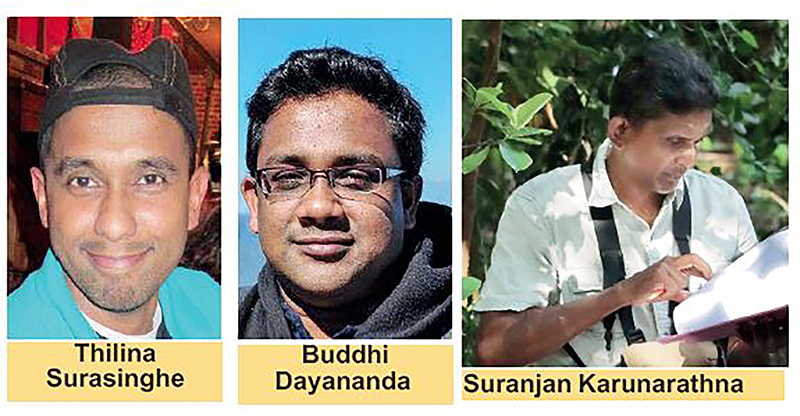
Tropical Species with No Thermal Buffer
The research highlights that tropical lizards such as those in Sri Lanka are particularly vulnerable because they already live close to their physiological thermal limits. Unlike temperate species, they experience little seasonal temperature variation and therefore possess limited behavioural or evolutionary flexibility to cope with rapid warming.
“Even modest temperature increases can have severe consequences in tropical systems,” Karunarathna explains. “There is very little room for error.”
Climate change also alters habitat structure. Canopy thinning, tree mortality and changes in vegetation density increase ground-level temperatures and reduce the availability of shaded refuges, further exposing lizards to heat stress.
Narrow Ranges, Small Populations
Many Sri Lankan lizards exist as small, isolated populations restricted to narrow altitudinal bands or specific microhabitats. Once these habitats are degraded — through land-use change, quarrying, infrastructure development or climate-driven vegetation loss — entire global populations can vanish.
“Species confined to isolated hills and rock outcrops are especially at risk,” Karunarathna says. “Surrounding human-modified landscapes prevent movement to cooler or more suitable areas.”
Even protected areas offer no guarantee of survival if species occupy only small pockets within reserves. Localised disturbances or microclimatic changes can still result in extinction.
Climate Change Amplifies Human Pressures
The study emphasises that climate change will intensify existing human-driven threats, including habitat fragmentation, land-use change and environmental degradation. Together, these pressures create extinction cascades that disproportionately affect narrowly distributed species.
“Climate change acts as a force multiplier,” Karunarathna explains. “It worsens the impacts of every other threat lizards already face.”
Without targeted conservation action, many species may disappear before they are formally assessed or fully understood.
Science Must Shape Conservation Policy
Researchers stress the urgent need for conservation strategies that recognise micro-endemism and climate vulnerability. They call for stronger environmental impact assessments, climate-informed land-use planning and long-term monitoring of isolated populations.
“We cannot rely on broad conservation measures alone,” Karunarathna says. “Species that exist in a single location require site-specific protection.”
The researchers also highlight the importance of continued taxonomic and ecological research, warning that extinction may outpace scientific discovery.
A Vanishing Evolutionary Legacy
Sri Lanka’s lizards are not merely small reptiles hidden from view; they represent millions of years of unique evolutionary history. Their loss would be irreversible.
“Once these species disappear, they are gone forever,” Karunarathna says. “Climate change is moving faster than our conservation response, and isolation means there are no second chances.”
By Ifham Nizam ✍️
Features
Online work compatibility of education tablets

Enabling Education-to-Income Pathways through Dual-Use Devices
The deployment of tablets and Chromebook-based devices for emergency education following Cyclone Ditwah presents an opportunity that extends beyond short-term academic continuity. International experience demonstrates that the same category of devices—when properly governed and configured—can support safe, ethical, and productive online work, particularly for youth and displaced populations. This annex outlines the types of online jobs compatible with such devices, their technical limitations, and their strategic national value within Sri Lanka’s recovery and human capital development agenda.
Compatible Categories of Online Work
At the foundational level, entry-level digital jobs are widely accessible through Android tablets and Chromebook devices. These roles typically require basic digital literacy, language comprehension, and sustained attention rather than advanced computing power. Common examples include data tagging and data validation tasks, AI training activities such as text, image, or voice labelling, online surveys and structured research tasks, digital form filling, and basic transcription work. These activities are routinely hosted on Google task-based platforms, global AI crowdsourcing systems, and micro-task portals operated by international NGOs and UN agencies. Such models have been extensively utilised in countries including India, the Philippines, Kenya, and Nepal, particularly in post-disaster and low-income contexts.
At an intermediate level, freelance and gig-based work becomes viable, especially when Chromebook tablets such as the Lenovo Chromebook Duet or Acer Chromebook Tab are used with detachable keyboards. These devices are well suited for content writing and editing, Sinhala–Tamil–English translation work, social media management, Canva-based design assignments, and virtual assistant roles. Chromebooks excel in this domain because they provide full browser functionality, seamless integration with Google Docs and Sheets (including offline drafting and later (synchronization), reliable file upload capabilities, and stable video conferencing through platforms such as Google Meet or Zoom. Freelancers across Southeast Asia and Africa already rely heavily on Chromebook-class devices for such work, demonstrating their suitability in bandwidth- and power-constrained environments.
A third category involves remote employment and structured part-time work, which is also feasible on Chromebook tablets when paired with a keyboard and headset. These roles include online tutoring support, customer service through chat or email, research assistance, and entry-level digital bookkeeping. While such work requires a more consistent internet connection—often achievable through mobile hotspots—it does not demand high-end hardware. The combination of portability, long battery life, and browser-based platforms makes these devices adequate for such employment models.
Functional Capabilities and Limitations
It is important to clearly distinguish what these devices can and cannot reasonably support. Tablets and Chromebooks are highly effective for web-based jobs, Google Workspace-driven tasks, cloud platforms, online interviews conducted via Zoom or Google Meet, and the use of digital wallets and electronic payment systems. However, they are not designed for heavy video editing, advanced software development environments, or professional engineering and design tools such as AutoCAD. This limitation does not materially reduce their relevance, as global labour market data indicate that approximately 70–75 per cent of online work worldwide is browser-based and fully compatible with tablet-class devices.
Device Suitability for Dual Use
Among commonly deployed devices, the Chromebook Duet and Acer Chromebook Tab offer the strongest balance between learning and online work, making them the most effective all-round options. Android tablets such as the Samsung Galaxy Tab A8 or A9 and the Nokia T20 also perform reliably when supplemented with keyboards, with the latter offering particularly strong battery endurance. Budget-oriented devices such as the Xiaomi Redmi Pad remain suitable for learning and basic work tasks, though with some limitations in sustained productivity. Across all device types, battery efficiency remains a decisive advantage.
Power and Energy Considerations
In disaster-affected and power-scarce environments, tablets outperform conventional laptops. A battery life of 10–12 hours effectively supports a full day of online work or study. Offline drafting of documents with later synchronisation further reduces dependence on continuous connectivity. The use of solar chargers and power banks can extend operational capacity significantly, making these devices particularly suitable for temporary shelters and community learning hubs.
Payment and Income Feasibility in the Sri Lankan Context
From a financial inclusion perspective, these devices are fully compatible with commonly used payment systems. Platforms such as PayPal (within existing national constraints), Payoneer, Wise, LankaQR, local banking applications, and NGO stipend mechanisms are all accessible through Android and ChromeOS environments. Notably, many Sri Lankan freelancers already conduct income-generating activities entirely via mobile devices, confirming the practical feasibility of tablet-based earning.
Strategic National Value
The dual use of tablets for both education and income generation carries significant strategic value for Sri Lanka. It helps prevent long-term dependency by enabling families to rebuild livelihoods, creates structured earning pathways for youth, and transforms disaster relief interventions into resilience-building investments. This approach supports a human resource management–driven recovery model rather than a welfare-dependent one. It aligns directly with the outcomes sought by the Ministry of Education, the Ministry of Labour and HRM reform initiatives, and broader national productivity and competitiveness goals.
Policy Positioning under the Vivonta / PPA Framework
Within the Vivonta/Proprietary Planters Alliance national response framework, it is recommended that these devices be formally positioned as “Learning + Livelihood Tablets.” This designation reflects their dual public value and supports a structured governance approach. Devices should be configured with dual profiles—Student and Worker—supplemented by basic digital job readiness modules, clear ethical guidance on online work, and safeguards against exploitation, particularly for vulnerable populations.
Performance Indicators
From a monitoring perspective, the expected reach of such an intervention is high, encompassing students, youth, and displaced adults. The anticipated impact is very high, as it directly enables the transition from education to income generation. Confidence in the approach is high due to extensive global precedent, while the required effort remains moderate, centering primarily on training, coordination, and platform curation rather than capital-intensive investment.
We respectfully invite the Open University of Sri Lanka, Derana, Sirasa, Rupavahini, DP Education, and Janith Wickramasinghe, National Online Job Coach, to join hands under a single national banner—
“Lighting the Dreams of Sri Lanka’s Emerging Leaders.”
by Lalin I De Silva, FIPM (SL) ✍️
-

 Business1 day ago
Business1 day agoKoaloo.Fi and Stredge forge strategic partnership to offer businesses sustainable supply chain solutions
-

 Business5 days ago
Business5 days agoDialog and UnionPay International Join Forces to Elevate Sri Lanka’s Digital Payment Landscape
-

 News5 days ago
News5 days agoSajith: Ashoka Chakra replaces Dharmachakra in Buddhism textbook
-

 Features5 days ago
Features5 days agoThe Paradox of Trump Power: Contested Authoritarian at Home, Uncontested Bully Abroad
-

 Features5 days ago
Features5 days agoSubject:Whatever happened to (my) three million dollars?
-
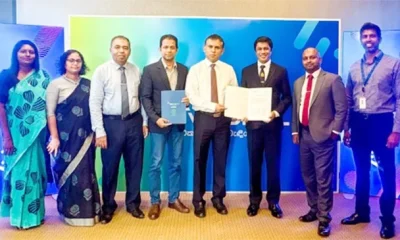
 Business1 day ago
Business1 day agoSLT MOBITEL and Fintelex empower farmers with the launch of Yaya Agro App
-
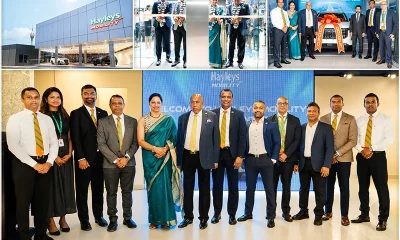
 Business1 day ago
Business1 day agoHayleys Mobility unveils Premium Delivery Centre
-

 News5 days ago
News5 days agoLevel I landslide early warnings issued to the Districts of Badulla, Kandy, Matale and Nuwara-Eliya extended




